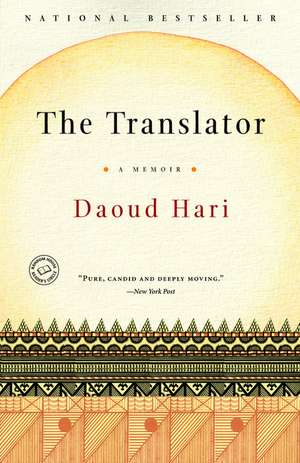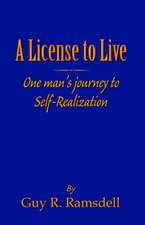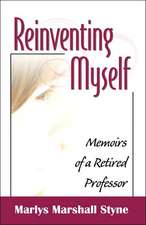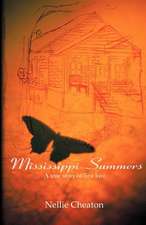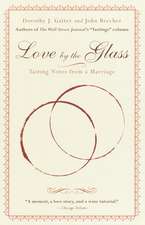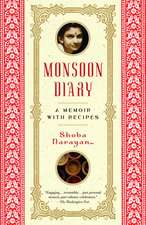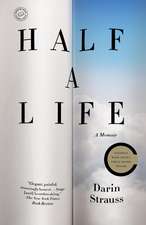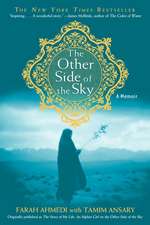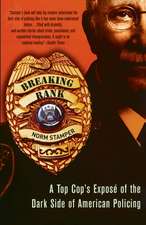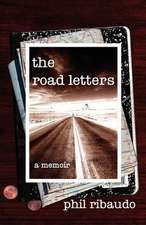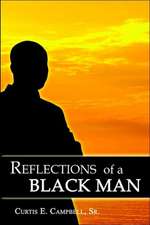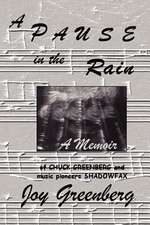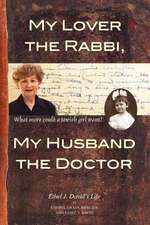The Translator: A Memoir
Autor Daoud Harien Limba Engleză Paperback – 31 dec 2008 – vârsta de la 15 până la 18 ani
Vezi toate premiile Carte premiată
Listen Up (2008)
In 2003, Daoud Hari, a Zaghawa tribesman, was among the hundreds of thousands of villagers attacked and driven from their homes by Sudanese-government-backed militia groups. Though Hari’s village was burned to the ground, his family decimated and dispersed, he himself escaped, eventually finding safety across the border. With his high school knowledge of languages, Hari offered his services as a translator and guide. In doing so, however, he had to return to the heart of darkness–and he has risked his life again and again to help ensure that the story of his people is told while there is still time to save them.
| Toate formatele și edițiile | Preț | Express |
|---|---|---|
| Paperback (2) | 109.65 lei 3-5 săpt. | |
| Random House Trade – 31 dec 2008 | 109.65 lei 3-5 săpt. | |
| Penguin Books – 4 iun 2008 | 112.13 lei 6-8 săpt. |
Preț: 109.65 lei
Nou
Puncte Express: 164
Preț estimativ în valută:
20.98€ • 21.83$ • 17.32£
20.98€ • 21.83$ • 17.32£
Carte disponibilă
Livrare economică 25 martie-08 aprilie
Preluare comenzi: 021 569.72.76
Specificații
ISBN-13: 9780812979176
ISBN-10: 0812979176
Pagini: 224
Dimensiuni: 139 x 203 x 15 mm
Greutate: 0.19 kg
Ediția:Reprint
Editura: Random House Trade
ISBN-10: 0812979176
Pagini: 224
Dimensiuni: 139 x 203 x 15 mm
Greutate: 0.19 kg
Ediția:Reprint
Editura: Random House Trade
Recenzii
“Pure, candid and deeply moving.”
–New York Post
“[The Translator] may be the biggest small book of this year, or any year. In roughly two hundred pages of simple, lucid prose, it lays open the Darfur genocide more intimately and powerfully than do a dozen books by journalists or academic experts.”
–The Washington Post Book World
“A book of unusually humane power and astounding moral clarity.”
–Kirkus Reviews (starred review)
“This is a book every American should read. . . . In the spirit of courage and a desire to protect his people, [Hari] has written an emotional yet gentle memoir.”
–Deseret Morning News
“Heart-stopping . . . a life-changing read.”
–Publishers Weekly (starred review)
–New York Post
“[The Translator] may be the biggest small book of this year, or any year. In roughly two hundred pages of simple, lucid prose, it lays open the Darfur genocide more intimately and powerfully than do a dozen books by journalists or academic experts.”
–The Washington Post Book World
“A book of unusually humane power and astounding moral clarity.”
–Kirkus Reviews (starred review)
“This is a book every American should read. . . . In the spirit of courage and a desire to protect his people, [Hari] has written an emotional yet gentle memoir.”
–Deseret Morning News
“Heart-stopping . . . a life-changing read.”
–Publishers Weekly (starred review)
Extras
Chapter One
A Call from the Road
I am sure you know how important it can be to get a good phone signal. We were speeding through the hot African desert in a scratched and muddy Land Cruiser that had been much whiter a week earlier. Our driver, a Darfur tribesman like me, was swerving through thorny acacia bushes, working the gears expertly in the deep sands of another and always another ravine, which we call a wadi, and sailing over the bumps in the land–there are no roads to speak of. In the backseat, a young news filmmaker from Britain, Philip Cox, was holding on as we bounced and as our supplies thumped and clanked and sloshed around. A veteran of these deserts, he was in good humor–even after a long week of dusty travel and so many emotionally difficult interviews. Survivors told us of villages surrounded at night by men with torches and machine guns, the killing of men, women, and children, the burning of people alive in the grass huts of Darfur. They told us of the rape and mutilation of young girls, of execution by machete of young men–sometimes eighty at a time in long lines.
You cannot be a human being and remain unmoved, yet if it is your job to get these stories out to the world, you keep going. So we did that.
I was Philip’s translator and guide, and it was my job tokeep us alive. Several times each hour I was calling militarycommanders from rebel groups or from the Chad National Army to ask if we should go this way or that way to avoid battles or other trouble.My great collection of phone numbers was the reason many reporters trusted me to take them intoDarfur. I don’t know how Philip got my cell number in the first place–maybe from the U.S. Embassy, or the U.S. State Department, or the British Embassy, or from the U.N. High Commissioner for Refugees, or from one of the aid organizations or a resistance group. It seemed that everyone had my cell phone number now. He certainly did not get my number from the government of Sudan, whose soldiers would kill me if they caught me bringing in a reporter.
These satellite phone calls–and often just cell phonecalls–frequently were to commanders who said, No, you will die if you come here, because we are fighting so-and-so today. We would then find another way.
If one rebel group hears that you have been calling another group, they might think you are a spy, even though you are only doing this for the journalist and for the story–you give the rebels nothing in return. I had to be careful about such things if I wanted to get my reporters out of Darfur alive, and so more stories could go out to the world. Since the attack on my own village, that had become my reason, and really my only reason, for living. I was feeling mostly dead inside and wanted only to make my remaining days count for something. You have perhaps felt this way at some time. Most of the young men I had grown up with were now dead or fighting in the resistance; I, too, had chosen to risk myself, but was using my English instead of a gun.
We needed to arrive at our destination before sundown or risk attack by the Sudanese Army, or by Darfur rebels aligned with government, or by other rebels who didn’t know who we were and who might kill us just to be safe. So we didn’t like what happened next.
Our Land Cruiser was suddenly blocked by six trucks that emerged from a maze of desert bushes. These were Land Cruisers, too, but with their roofs cut off completely so men could pile in and out instantly, as when they have to escape a losing battle or get out before a rocket-propelled grenade (RPG) reaches them. Dusty men with Kalashnikov rifles piled out. On the order of their commander, they pointed their guns at us. When so many guns are pulled ready at the same time, the crunching sound is memorable. We moved slowly out of our vehicle with our
hands raised.
These men were clearly rebel troops: their uniforms were but dirty jeans; ammunition belts hung across their chests; their loosely wrapped turbans, or shals–head scarves, really–were caked with the dust of many days’fighting. No doctors travel with these troops, who fight almost every day and leave their friends in shallow graves. Emotionally, they are walking dead men who count their future in hours. This makes them often ruthless, as if they think everyone might as well go to the next life with them. Many of them have seen their families murdered and their villages burned. You can imagine how you would feel if your hometown were wiped away and all your family killed by an enemy whom you now roam the land to find and kill so you can die in peace.
Among the rebels are the Sudan Liberation Movement, the Sudan Liberation Army, the Justice and Equality Movement, and several others. There are other groups in Chad, and they travel across the borders as they please. Where they get their guns and money is often a mystery, but Darfur has been filled with automatic weapons from the time when Libya attacked Chad and used Darfur as a staging area. Also, it must be understood that Sudan is aligned with radical Islamic groups and is, as a separate matter, letting China get most of its oil. So some Western interests and some surrounding countries are thought to be involved in supporting the rebel groups. It is sad how ordinary people suffer when these chess games are played.
Nearly half of Africa is covered by the pastoral lands of herding villages, and much of this land has great wealth below and poor people above. They are among the three hundred million Africans who earn less than a dollar a day, and who are often pushed out of the way or killed for such things as oil, water, metal ore, and diamonds. This makes the rise of rebel groups very easy. The men who stopped us probably needed no persuasion to join this group.
The men’s weary-looking young commander walked to me and said in the Zaghawa language,
“Daoud Ibarahaem Hari, we know all about you. You are a spy. I know you are Zaghawa like us, not Arab, but unfortunately we have some orders, and we have to kill you now.”
It was easy for him to know I was a Zaghawa from the small scars that look like quotation marks and were cut into my temples by my grandmother when I was an infant. I told him yes, I am Zaghawa, but I am no spy.
The commander breathed in a sad way and then put the muzzle of his M-14 rifle to one of these scars on my head. He asked me to hold still and told Philip to stand away. He paused to tell Philip in broken English not to worry, that they would send him back to Chad after they killed me.
“Yes, fine, but just a sec,” Philip replied, holding his hand up to stop the necessary business for a moment while he consulted me.
“What is going on?”
“They think I am a spy, and they are going to shoot the gun and it will make my head explode, so you should stand away.”
“Who are they?” he asked.
I told him the name of the group, nodding carefully in the direction of a vehicle that had their initials handpainted on the side.
He looked at the vehicle and lowered his hands to his hips. He looked the way the British look when they are upset by some unnecessary inconvenience. Philip wore a well-wrapped turban; his skin was tanned and a littlecracked from his many adventures in these deserts. He was not going to stand by and lose a perfectly good translator.
“Wait just a moment!” he said to the rebel commander. “Do . . . not . . . shoot . . . this . . . man. This man is not a spy. This man is my translator and his name is Suleyman Abakar Moussa of Chad. He has his papers.” Philip thought that was my name. I had been using that name to avoid being deported from Chad to a certain death in Sudan, where I was wanted, and to avoid being otherwise forced to stay in a Chad refugee camp, where I could be of little service.
“I hired this man to come here; he is not a spy. We are doing a film for British television. Do you understand this? It’s absolutely essential that you understand this.” He asked me to translate, just to be sure, which, under my circumstance, I was happy to do.
More than his words, Philip’s manner made the commander hesitate. I watched the commander’s finger pet the trigger. The gun muzzle was hot against my temple. Had he fired it recently, or was it just hot from the sun? I decided that if these were about to be my last thoughts, I should try some better ones instead. So I thought about my family and how I loved them and how I might see my brothers soon.
“I am going to make a telephone call,” Philip explained, slowly withdrawing his satellite phone from his khaki pants pocket. “You will not shoot this man, because your commander will talk to you on this telephone momentarily– you understand?” He looked up a number from his pocket notebook. It was the personal number of the rebel group’s top commander. He had interviewed him the previous year.
“Your top man,” he said to all the gunmen standing like a firing squad around us as he waited for the call to go through. “Top man. Calling his personal number now. It’s ringing. Ringing and ringing.”
God is good. The satellite phone had a strong signal. The number still worked. The distant commander answered his own phone. He remembered Philip warmly. Miracle after miracle.
Philip talked on the phone in a rapid English that I quietly translated for the man holding the gun.
Philip held one finger up as he spoke, begging with that finger and with his eyes for one more moment, one more moment. He laughed to show that he and the man on the phone were old friends.
“They are old friends,” I translated.
Philip then held out the satellite phone to the commander, who pressed the muzzle even harder against my head.
“Please talk to him now. Please. He says it’s an order for you to talk to him.”
The commander hesitated as if it were some trick, but finally reached over and took the phone.
The two commanders talked at length. I watched his trigger finger rise and fall like a cobra and then finally slither away. We were told to leave the country immediately.
To not get killed is a very good thing. It makes you smile again and again, foolishly, helplessly, for several hours. Amazing. I was not shot–humdallah.My brothers, you will have to wait for me a little longer.
Our driver had been wide-eyed through all this, since drivers often do not fare well in this kind of situation. There was joy and some laughter in the Land Cruiser as we sped back toward the village of Tine–which you say “Tina”–on the Chad-Sudan border.
“That was amazing what you did,” I said to Philip. We drove a few trees farther before he replied.
“Amazing, yes. Actually, I’ve been trying to get through to him for weeks,” he said. “Lucky thing, really.”
The driver, who spoke almost no English, asked me what Philip had said. I told him that he had said God is good, which, indeed, is what I believe he was saying.
From the Hardcover edition.
A Call from the Road
I am sure you know how important it can be to get a good phone signal. We were speeding through the hot African desert in a scratched and muddy Land Cruiser that had been much whiter a week earlier. Our driver, a Darfur tribesman like me, was swerving through thorny acacia bushes, working the gears expertly in the deep sands of another and always another ravine, which we call a wadi, and sailing over the bumps in the land–there are no roads to speak of. In the backseat, a young news filmmaker from Britain, Philip Cox, was holding on as we bounced and as our supplies thumped and clanked and sloshed around. A veteran of these deserts, he was in good humor–even after a long week of dusty travel and so many emotionally difficult interviews. Survivors told us of villages surrounded at night by men with torches and machine guns, the killing of men, women, and children, the burning of people alive in the grass huts of Darfur. They told us of the rape and mutilation of young girls, of execution by machete of young men–sometimes eighty at a time in long lines.
You cannot be a human being and remain unmoved, yet if it is your job to get these stories out to the world, you keep going. So we did that.
I was Philip’s translator and guide, and it was my job tokeep us alive. Several times each hour I was calling militarycommanders from rebel groups or from the Chad National Army to ask if we should go this way or that way to avoid battles or other trouble.My great collection of phone numbers was the reason many reporters trusted me to take them intoDarfur. I don’t know how Philip got my cell number in the first place–maybe from the U.S. Embassy, or the U.S. State Department, or the British Embassy, or from the U.N. High Commissioner for Refugees, or from one of the aid organizations or a resistance group. It seemed that everyone had my cell phone number now. He certainly did not get my number from the government of Sudan, whose soldiers would kill me if they caught me bringing in a reporter.
These satellite phone calls–and often just cell phonecalls–frequently were to commanders who said, No, you will die if you come here, because we are fighting so-and-so today. We would then find another way.
If one rebel group hears that you have been calling another group, they might think you are a spy, even though you are only doing this for the journalist and for the story–you give the rebels nothing in return. I had to be careful about such things if I wanted to get my reporters out of Darfur alive, and so more stories could go out to the world. Since the attack on my own village, that had become my reason, and really my only reason, for living. I was feeling mostly dead inside and wanted only to make my remaining days count for something. You have perhaps felt this way at some time. Most of the young men I had grown up with were now dead or fighting in the resistance; I, too, had chosen to risk myself, but was using my English instead of a gun.
We needed to arrive at our destination before sundown or risk attack by the Sudanese Army, or by Darfur rebels aligned with government, or by other rebels who didn’t know who we were and who might kill us just to be safe. So we didn’t like what happened next.
Our Land Cruiser was suddenly blocked by six trucks that emerged from a maze of desert bushes. These were Land Cruisers, too, but with their roofs cut off completely so men could pile in and out instantly, as when they have to escape a losing battle or get out before a rocket-propelled grenade (RPG) reaches them. Dusty men with Kalashnikov rifles piled out. On the order of their commander, they pointed their guns at us. When so many guns are pulled ready at the same time, the crunching sound is memorable. We moved slowly out of our vehicle with our
hands raised.
These men were clearly rebel troops: their uniforms were but dirty jeans; ammunition belts hung across their chests; their loosely wrapped turbans, or shals–head scarves, really–were caked with the dust of many days’fighting. No doctors travel with these troops, who fight almost every day and leave their friends in shallow graves. Emotionally, they are walking dead men who count their future in hours. This makes them often ruthless, as if they think everyone might as well go to the next life with them. Many of them have seen their families murdered and their villages burned. You can imagine how you would feel if your hometown were wiped away and all your family killed by an enemy whom you now roam the land to find and kill so you can die in peace.
Among the rebels are the Sudan Liberation Movement, the Sudan Liberation Army, the Justice and Equality Movement, and several others. There are other groups in Chad, and they travel across the borders as they please. Where they get their guns and money is often a mystery, but Darfur has been filled with automatic weapons from the time when Libya attacked Chad and used Darfur as a staging area. Also, it must be understood that Sudan is aligned with radical Islamic groups and is, as a separate matter, letting China get most of its oil. So some Western interests and some surrounding countries are thought to be involved in supporting the rebel groups. It is sad how ordinary people suffer when these chess games are played.
Nearly half of Africa is covered by the pastoral lands of herding villages, and much of this land has great wealth below and poor people above. They are among the three hundred million Africans who earn less than a dollar a day, and who are often pushed out of the way or killed for such things as oil, water, metal ore, and diamonds. This makes the rise of rebel groups very easy. The men who stopped us probably needed no persuasion to join this group.
The men’s weary-looking young commander walked to me and said in the Zaghawa language,
“Daoud Ibarahaem Hari, we know all about you. You are a spy. I know you are Zaghawa like us, not Arab, but unfortunately we have some orders, and we have to kill you now.”
It was easy for him to know I was a Zaghawa from the small scars that look like quotation marks and were cut into my temples by my grandmother when I was an infant. I told him yes, I am Zaghawa, but I am no spy.
The commander breathed in a sad way and then put the muzzle of his M-14 rifle to one of these scars on my head. He asked me to hold still and told Philip to stand away. He paused to tell Philip in broken English not to worry, that they would send him back to Chad after they killed me.
“Yes, fine, but just a sec,” Philip replied, holding his hand up to stop the necessary business for a moment while he consulted me.
“What is going on?”
“They think I am a spy, and they are going to shoot the gun and it will make my head explode, so you should stand away.”
“Who are they?” he asked.
I told him the name of the group, nodding carefully in the direction of a vehicle that had their initials handpainted on the side.
He looked at the vehicle and lowered his hands to his hips. He looked the way the British look when they are upset by some unnecessary inconvenience. Philip wore a well-wrapped turban; his skin was tanned and a littlecracked from his many adventures in these deserts. He was not going to stand by and lose a perfectly good translator.
“Wait just a moment!” he said to the rebel commander. “Do . . . not . . . shoot . . . this . . . man. This man is not a spy. This man is my translator and his name is Suleyman Abakar Moussa of Chad. He has his papers.” Philip thought that was my name. I had been using that name to avoid being deported from Chad to a certain death in Sudan, where I was wanted, and to avoid being otherwise forced to stay in a Chad refugee camp, where I could be of little service.
“I hired this man to come here; he is not a spy. We are doing a film for British television. Do you understand this? It’s absolutely essential that you understand this.” He asked me to translate, just to be sure, which, under my circumstance, I was happy to do.
More than his words, Philip’s manner made the commander hesitate. I watched the commander’s finger pet the trigger. The gun muzzle was hot against my temple. Had he fired it recently, or was it just hot from the sun? I decided that if these were about to be my last thoughts, I should try some better ones instead. So I thought about my family and how I loved them and how I might see my brothers soon.
“I am going to make a telephone call,” Philip explained, slowly withdrawing his satellite phone from his khaki pants pocket. “You will not shoot this man, because your commander will talk to you on this telephone momentarily– you understand?” He looked up a number from his pocket notebook. It was the personal number of the rebel group’s top commander. He had interviewed him the previous year.
“Your top man,” he said to all the gunmen standing like a firing squad around us as he waited for the call to go through. “Top man. Calling his personal number now. It’s ringing. Ringing and ringing.”
God is good. The satellite phone had a strong signal. The number still worked. The distant commander answered his own phone. He remembered Philip warmly. Miracle after miracle.
Philip talked on the phone in a rapid English that I quietly translated for the man holding the gun.
Philip held one finger up as he spoke, begging with that finger and with his eyes for one more moment, one more moment. He laughed to show that he and the man on the phone were old friends.
“They are old friends,” I translated.
Philip then held out the satellite phone to the commander, who pressed the muzzle even harder against my head.
“Please talk to him now. Please. He says it’s an order for you to talk to him.”
The commander hesitated as if it were some trick, but finally reached over and took the phone.
The two commanders talked at length. I watched his trigger finger rise and fall like a cobra and then finally slither away. We were told to leave the country immediately.
To not get killed is a very good thing. It makes you smile again and again, foolishly, helplessly, for several hours. Amazing. I was not shot–humdallah.My brothers, you will have to wait for me a little longer.
Our driver had been wide-eyed through all this, since drivers often do not fare well in this kind of situation. There was joy and some laughter in the Land Cruiser as we sped back toward the village of Tine–which you say “Tina”–on the Chad-Sudan border.
“That was amazing what you did,” I said to Philip. We drove a few trees farther before he replied.
“Amazing, yes. Actually, I’ve been trying to get through to him for weeks,” he said. “Lucky thing, really.”
The driver, who spoke almost no English, asked me what Philip had said. I told him that he had said God is good, which, indeed, is what I believe he was saying.
From the Hardcover edition.
Notă biografică
Daoud Hari was born in the Darfur region of Sudan. After escaping an attack on his village, he entered the refugee camps in Chad and began serving as a translator for major news organizations including The New York Times, NBC, and the BBC, as well as the United Nations and other aid groups. He now lives in the United States and was part of SaveDarfur.org's Voices from Darfur tour.
From the Hardcover edition.
From the Hardcover edition.
Descriere
"I am the translator who has taken journalists into dangerous Darfur. It is my intention now to take you there in this book, if you have the courage to come with me." "The Translator" is a suspenseful, harrowing, and deeply moving memoir of how one person has made a difference in a dangerous world.
Premii
- Listen Up Editor's Choice, 2008
